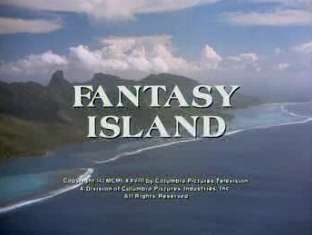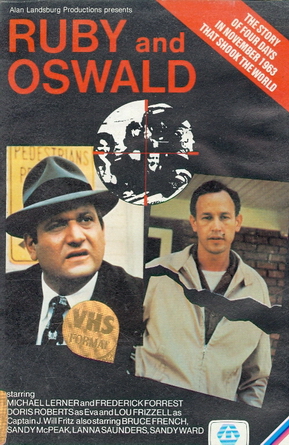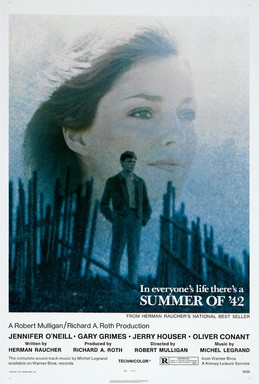Welcome to Retro Television Reviews, a feature where we review some of our favorite and least favorite shows of the past! On Tuesdays, I will be reviewing the original Fantasy Island, which ran on ABC from 1977 to 1986. The entire show is currently streaming on Tubi!
Smiles, everyone, smiles! It’s time to take a trip to Fantasy Island!
Episode 2.21 “Yesterday’s Love/Fountain of Youth”
(Dir by George McCowan, originally aired on March 17th, 1979)
Tattoo has the hiccups so Mr. Roarke pops a brown paper bag beside his head and scares the Hell out of him. Tattoo loses his hiccups and Roarke get the joy of tormenting his assistant.
As for the fantasies, they both involve youth and aging.
Charles (Craig Stevens) and Peggy Atwood (Eleanor Parker) met in 1944, when he was in the Navy and she was a member of the USO. Now, over thirty-years later, Charles wants to open a bait shop and Peggy wants to get a divorce. Their children pay for Charles and Peggy to take a trip to Fantasy Island, where Mr. Roarke has recreated the period in which they first met. He’s also invited all of their old friends to come celebrate Peggy and Charles’s anniversary. Unfortunately, one of those friends is the totally arrogant Brick Howard (Guy Madison), to whom Peggy was engaged before meeting Charles. It quickly becomes apparent that Brick wants a second chance and that, unlike Charles, Brick has bigger plans than spending his retirement selling fishing bait.
Will Peggy leave her husband for Brick Howard? Or will she decide that running a bait shop sounds like a great way to spend her twilight years? You’ll have to watch the show to find out …. or you can read the next paragraph.
Of course, Peggy stays with Charles! It wouldn’t be Fantasy Island if the ending wasn’t a happy one. Add to that, when has anyone named Brick Howard not turned out to be a cad? As you can guess, this fantasy was a bit predictable but the cast of veteran actors were all likable and they gave it their all. This fantasy was simple but pleasant.
As for the other fantasy, world-famous explorer Jeff Bailey (Dennis Cole) needs money so Mr. Roarke arranges for him to be hired by aging millionaire J.J. Pettigrew (Lew Ayres). J.J. has heard rumors that the fabled Fountain of Youth can be found on an island near Fantasy Island. He offers to pay Bailey a million dollars if he can find it. Of course, Bailey does find the Fountain but he also discovers that the Fountain is guarded by a fierce tribe of headhunters. The headhunters have no intention of allowing anyone else to have any of the water’s fountain. The headhunters may be intimidating but they also believe that a polaroid camera can steal their soul. Bailey threatens to take all of their pictures at one point and tells them that J.J. possesses “white man magic.” Seen today, it’s a bit awkward to watch. To be honest, I imagine it was a bit awkward in 1979 as well.
Using his canteen, Bailey steals some of the water from the fountain but, while he and his girlfriend (Mary Louise Weller) are fleeing the natives, he loses the canteen. J.J. has a heart attack and appears to be dead but, at the end of the episode, Roarke announces that J.J. is expected to survive and he’s written Bailey a check for a million dollars. Bailey found the fountain and that was their agreement. So, I guess that all worked out.
Overall, this episode was uneven. The anniversary story was sweet but predictable. The headhunter story was sometimes cingey but still enjoyably campy. This was pretty much a standard episode of Fantasy Island. Still, I can’t help but wonder why J.J. didn’t just buy an eternal youth fantasy instead of hiring Bailey to search for the fountain. I guess that question is destined to be forever unanswered.
Next week’s episode is all about comedians and prisoners!

 The year is 1963. The month is November. The city is Dallas. The President of the United States, John F. Kennedy, is coming to visit and two very different men have very different reactions. An eccentric and lonely strip club owner, Jack Ruby (Michael Lerner), worries about an anti-Kennedy ad that has just appeared in the Dallas Morning News. Another loner, a strange man named Lee Harvey Oswald (Frederic Forrest), is busy making plans of his own. When Kennedy is assassinated, history brings Ruby and Oswald together in a way that a shattered nation will never forget.
The year is 1963. The month is November. The city is Dallas. The President of the United States, John F. Kennedy, is coming to visit and two very different men have very different reactions. An eccentric and lonely strip club owner, Jack Ruby (Michael Lerner), worries about an anti-Kennedy ad that has just appeared in the Dallas Morning News. Another loner, a strange man named Lee Harvey Oswald (Frederic Forrest), is busy making plans of his own. When Kennedy is assassinated, history brings Ruby and Oswald together in a way that a shattered nation will never forget.
